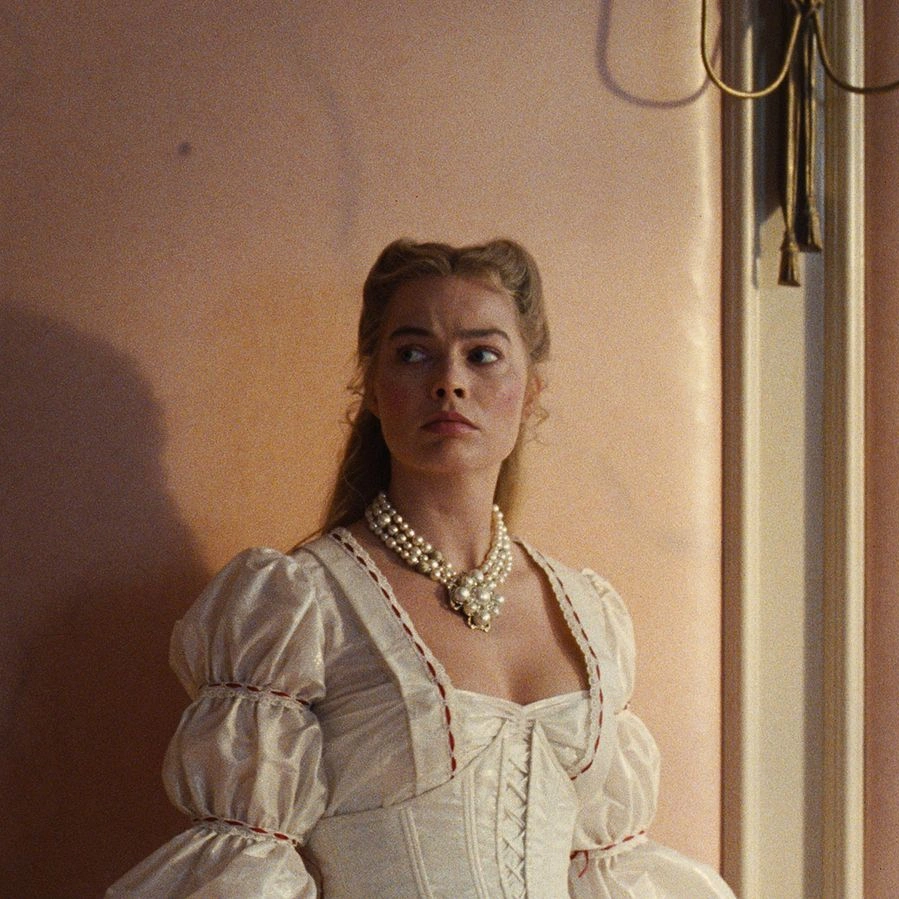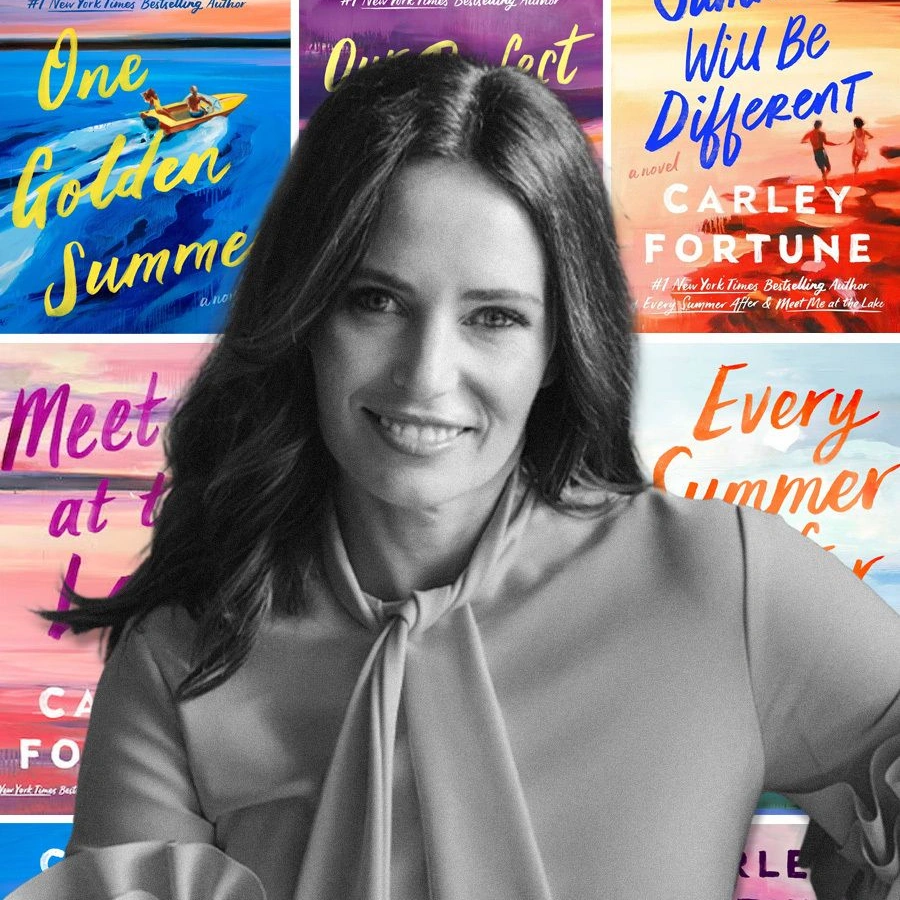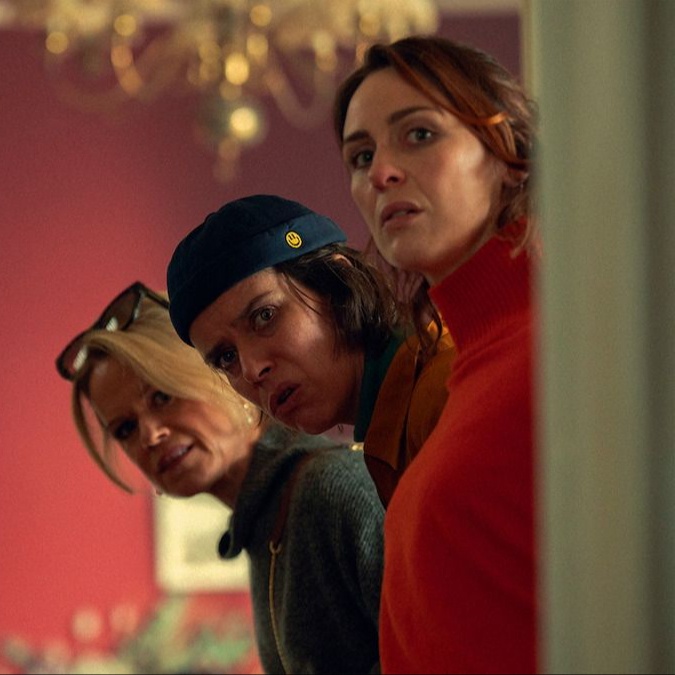Go to Berthoud with a situation that needs remedying, be it a tendency to sleep too much (or too little) or being stuck in the wrong career, and you’ll come back with a reading list that will somehow help you wrap your head around your conundrum—a novel cure, if you will. As anyone who likes to read will tell you, there are few things that feel better than being lost in a good book. Berthoud just matches one (or 10) to your current state of mind more accurately.
Berthoud and Elderkin met at Cambridge as 18-year-olds, recommending Jane Austen and Jilly Cooper to each other through college heartbreaks and other life upheavals.
In a video call from near London, in the middle of the Easter break, Berthoud—now in her late forties and wearing her signature silver eyeshadow—recalls how the idea of becoming a bibliotherapist fomented. “We talked about this idea of becoming agony aunts of sorts for newspapers so people would write to us and say, ‘Dear Book Doctor, I have this problem: my husband’s run off with my sister.’”
Ladies with runaway husbands, though, had to wait as life got in the way: Elderkin went on to write her own novels and Berthoud became an artist. “So, we kind of put if off as an idea then, but over the next 10 years kept talking about being book doctors and how we would love to do it. And then we met Alain de Botton, who was just starting The School of Life in 2007, and we spoke to him saying, what do you think about this idea of doing bibliotherapy at The School of Life? He thought it was a brilliant idea because he was already keen on the idea of bibliotherapy. He had already written the book How Proust Can Save Your Life and that was all about the joy of reading and the joy of fiction.”
Bibliotherapy, as a concept, can be traced back to the ancient Greeks, finding mention in the work of Greek historian Diodorus Siculus. Over the years, bibliotherapy has been adopted by the likes of Sigmund Freud and Benjamin Rush in psychoanalysis and psychotherapy, sitting as it does at the intersection of science, culture and healing.
Thus, the bibliotherapy service at The School of Life started in 2007. If you want to avail of the service, you’ll need to fill out a questionnaire on your life in books. What do you like to read? What don’t you like reading? Where do you read? When? Do you read aloud with anyone? Are you a visual reader or is Zadie Smith reading out The Fraud in your AirPods as you toss your fettucine more your vibe? Also, what’s happening in your life. Are you single, married, divorced? Do you have children? Do you have any particular preoccupations right now? “And they respond, hopefully, in quite a lot of detail and then write it out in the questionnaire,” says Berthoud.
A 60-minute interview, either in person or on Zoom, follows this questionnaire. (The hour-long session costs GBP 100.) A few days later, you get a list of six books that Berthoud thinks are particularly suited to you. “And then we do follow-up sessions as well, so I encourage people to come back after three months when they’ve read all the books and then have a session to talk about how they got on with the books and then set another six recommendations,” says Berthoud. “Sometimes I see people over a long period, which is very nice.”
The Novel Cure was Berthoud and Elderkin realising they could turn their discoveries in the mind-altering power of fiction into a book.
It feels like a book you always want to have on hand as you pluck and hand out book titles you then dispense like pills from an apothecary. “Our apothecary contains Balzacian balms and Tolstoyan tourniquets, the salves of Saramago and the purges of Perec and Proust” the introduction to the book announces. The “ailments” are listed in alphabetical order, and the “novel cure” for them is prescribed alongside. So, you’ll get Marina Lewycka’s A Short History of Tractors in Ukrainian for “age gap between lovers”, and Perfume: The Story of a Murderer by Patrick Süskind if you hate your nose. The sparkling Chinaman: The Legend of Pradeep Mathew by Sri Lankan author Shehan Karunatilaka is supposed to cure an obsession with cricket (widespread in our cricket-crazy nation). There are books to deal with anxiety, depression, grief, and loss of confidence. Every once in a while, there are cures for “reading ailments”. Like “a refusal to give up halfway through”, a tendency to be put off by hype or having a partner who doesn’t read. There are also helpful (if you’re not sharing a bathroom) lists like “The Ten Best Novels to Read on the Loo” and reading lists for those in their twenties, thirties, forties... The tone is witty and funny and you’ll guffaw embarrassingly every now and then (like I did while reading the cure for ‘man flu’).
“We just tried to be as diverse and fair as possible, so [there’s] an equal number, as much as possible, of male and female writers, and writers from around the world,” says Berthoud. “And we wanted to have maybe half of the books as classics and the other half as more modern books. So, we’ve got classics like Dickens, Hardy, Jane Austen, and Virginia Woolf, but then we also have Ian McEwan, the more heavyweight modern writers.”
Like most ardent readers, Berthoud has been a bookworm all her life. For those on either side of the paperback vs audiobook debate (“Is an audiobook a book?”), this should settle it: Two of the three books that Berthoud devours in a week are likely to be audiobooks. “I find it quite hard to sit still and read,” she explains.
Berthoud is currently reading Larry McMurtry’s Pulitzer-winning novel Lonesome Dove. “It’s not my normal kind of book but it’s something everyone’s quite obsessed with. It’s a kind of cowboy book, but it’s 1,000 pages!” She’s next looking forward to The Two Roberts by Damian Barr releasing later this year.
Her take on re-reading a novel? She’s read Susanna Clarke’s Piranesi five times, and can sit down with True Grit, Rebecca, Jitterbug Perfume, Cosmicomics, and The Master and Margarita again and again.
Besides The Novel Cure, Berthoud is also the author of Mindfulness in Reading: Meditations on Words and Wisdom, and Fiction Prescriptions. Outside of her work with The School of Life, she is also training bibliotherapists around the world, where, over the course of 10 sessions, she teaches people how to harness the restorative powers of a good novel to do good.
What are the problems that people approach a bibliotherapist with? “A lot of issues are about finding purpose in life, being at a crossroads in their career and wondering what to do next; experiencing grief from the loss of a loved one; or relationship issues, like being alienated from your family or having fallen out with someone in your family or that kind of thing,” she says. “I also quite often get women in their mid-thirties who are thinking about whether they want to have a child or not. We see all kinds of people. We also talk to people about retiring, about what they’re going to do now that they’re retiring, and what they should read that would help them feel positive about the next 20 years. Or people are worrying about specific issues as well, like leaving home or running a new business. So, for all those things we give a cure using a novel.”
Any advice for readers? Without batting a silver-tinted eyelid, Berthoud says: “Keep a reading diary. To all my bibliotherapy clients I say, keep a reading notebook on every book you’ve ever read.”
The Novel Cure: An A-Z of Literary Remedies, published by Roli Books, is available on amazon.in. You can book a one-on-one bibliotherapy session with Berthoud on ellaberthoud.com
Ella Berthoud’s book prescription for when you’re feeling down:
Still Life by Sarah Winman
“One of my favourite recent novels, this describes the unexpected life of a Second World War soldier who inherits a flat in Florence, where he creates a new, unconventional family. With a parrot who speaks in Shakespearean verse, a globe-maker, and a cast of strong women, this is an uplifting, wonderful novel.”
The Enchanted April by Elizabeth von Arnim
“Do you enjoy wisteria and sunshine? If so, dive into this charming novel, set in 1920, which takes two dissatisfied women to Italy to rediscover themselves and their relationships with men. In the end there are four of them, including the beautiful Lady Caroline, with her constant caustic comments.”
The Guide by RK Narayan
“This is an uplifting book about a spiritual journey taken by a man who begins life with few prospects, seems to be rather feckless, but ultimately he has a surprising fate.”












